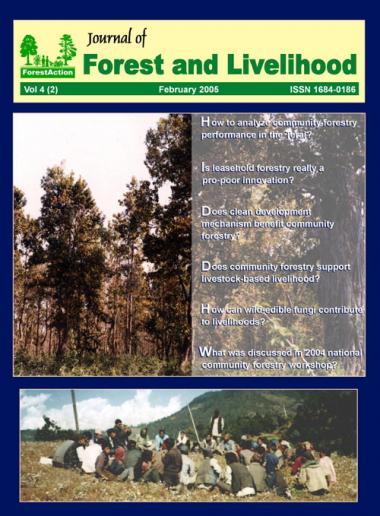Is Leasehold Forestry Really a Pro-poor Innovation? Evidences from Kavre District, Nepal
DOI:
https://doi.org/10.3126/jfl.v4i2.59789Keywords:
Is Leasehold Forestry Really a Pro-poor Innovation?, forestryAbstract
Community based natural resource management has gained increased concern in the recent years as a means to halting forest degradation and addressing poverty. In Nepal, one of the recent initiatives in this regard is Leasehold Forest Policy, which seeks to enhance the access of the poorer members of the communities to communal land and forest resources. This paper seeks to analyze the practical efficacy of this policy, taking case studies of a cluster of eight Leasehold Forest User Groups in the central hills of Nepal. Our analysis indicates that despite explicit policy emphasis on granting exclusive use rights to the targeted poorest households, there was limited success in the cases studied. We argue that the policy was based on the impractical assumption that “redistributive impact” can be achieved through centrally designed policy instruments and delivery of extension services by state development organizations without deliberative engagement of citizens at different levels.
Downloads
Downloads
Published
How to Cite
Issue
Section
License

This work is licensed under a Creative Commons Attribution-NonCommercial 4.0 International License.
CC-BY-NC: This license allows reusers to distribute, remix, adapt, and build upon the material in any medium or format for noncommercial purposes only, and only so long as attribution is given to the creator.





